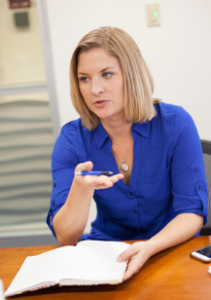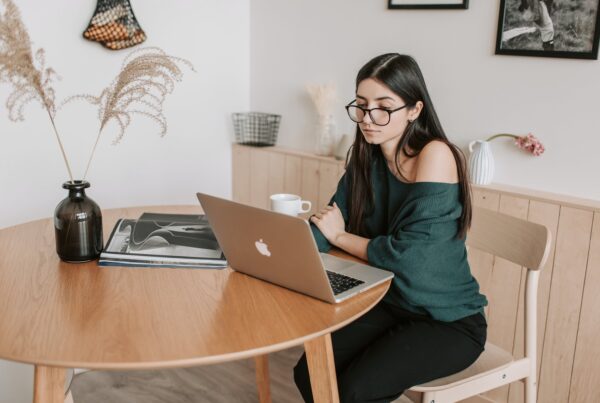
What do you think when someone says – I work full time, I’m in school part-time, I’m a writer for various publications, I run a blog, I co-founded and am running a research initiative, and I’m advising and participating in a student group project to create an app for refugees.
I think – that’s ambition. Then I want to know what’s driving someone to participate in so many projects. Where is that drive coming from?
This week I interviewed Vicky Kelberer-McKee, an independent consultant who works on the Syrian refugee response.
At one point in time she was managing all of these projects simultaneously, and now she has built a career with a mission to increase the impact of non-profit organizations that are working to address some of the biggest issues facing humanity today: migration, climate change, poverty, inequality, etc.
In this interview, Vicky talks about her work with the Syrian refugee crisis and where her inspiration came from (living in Minnesota – yup!).
She also talks about how she manages to get so many projects done simultaneously while making an impact.
This interview is FULL of amazing insights and advice.
If you’re looking to feel more connected to your work, you want to make an impact and you could use some guidance with taking a BIG dream and making it a reality, this interview is for you. Vicky specifically shares SIX steps she takes to make progress with her goals.
Meet Vicky Kelberer- McKee
Give us some background. Where are you from, and where did you start out?
I grew up in the northern suburbs of the Twin Cities in Minnesota.
I moved to Boston in 2008 for my undergraduate degree in International Relations at Boston University, which I completed Summa Cum Laude in 2012.
I ended up staying there for nine years, working full-time in the BU International Relations program as an academic advisor, and completing my Masters in International Affairs at the same time.
What is your mission, the work you want to do?
I want to increase the impact and efficacy of non-profit organizations working to address some of the biggest questions facing humanity today: migration, climate change, poverty, inequality, etc.
So far my work has concentrated in the global refugee response generally, and the Syrian refugee response specifically.
I also seek to involve young people in addressing these problems, because I’ve found that empowering young people to do this work leads to incredible and innovative outcomes.
What led you here? Can you recall the experiences that drove you to your mission?
Growing up in Minnesota, which most people don’t think of as the most diverse place, I lived alongside Hmong and Somali refugees.
Because of my interactions with my friends and neighbors from these communities, I developed a high level of respect for people who had been through refugee experiences from a young age.
I don’t like to use the term “refugee” to describe people – I see them as people who have had the experience of being a refugee, but that’s not what defines them.
Minnesota could not have been more different culturally, linguistically, and even climatically (hello, nine months of winter!) than their homes, and yet, they not only survived unthinkable circumstances to make it to Minnesota, but also were thriving in their new lives and new communities.
In college, I always knew I wanted to do something that allowed me to study the Middle East and Arabic because my dad’s family had lived in the region for decades and it’s always been a personal draw for me.
My eventual major was International relations, and I started out focusing on human rights and international law. This led me to an internship in Geneva, Switzerland with an UNaffiliated Arab human rights NGO in the spring of 2011.
Well, that happened to be the start of the so-called “Arab Spring,” so instead of a typical internship, I was thrown into a full-blown crisis-mode organization that was tackling some of the most heartrending and egregious violations that took place during the uprisings.
I worked on the “Syria desk,” and we had rapporteurs on the ground who at first could send us individual cases of violations, but quickly had to resort to sending us list after list, full of thousands of names of people who were murdered, tortured, disappeared, or arbitrarily detained by their government.
Those names are never going to leave me. It became a conflict and a crisis that I couldn’t turn away from, but I was frustrated by being so far away behind a desk in the West.
That’s how I returned to working directly with refugees, years after I had first realized how much I cared for people who went through refugee experiences, and I finally had the skills and education to make it a reality.
What challenges did you face along the way, and how did you overcome these challenges?
The first challenge is always knowing where to start. I was making a big change from the legal human rights field to the much more technical and hands-on area of humanitarian responses.
I also had just started working full-time as an academic advisor at my university to pay for graduate school, so carving out time to really develop the skills I needed was challenging.
- My first piece of advice for knowing where to start is to go directly to your mentors, and if you don’t have any yet, find some fast. I had a wonderful group of mentors around me that helped me figure it out step by step, and have stood by me through the years encouraging my work and helping me to grow.
- Second, I also recommend the three-feet rule when you’re starting a new project. The three-feet rule comes from mountain climbing, and the basic principle is that while summiting the mountain is the goal, it is accomplished by concentrating only on the three feet ahead of you. No climber can stretch to the top of the mountain in one go, but those three feet determine everything.
- Goal setting also really helps.Every year, I reflect on what I’ve accomplished in four categories (personal, professional, financial, and fun). I then set new yearly goals in each area, with room to add or subtract as necessary. Then I start making monthly checklists every three months to actually work towards each goal.
- On the issue of time, I basically just had to be vigilantly organized, and cut myself some slack when something inevitably had to give. By the end of my graduate program, I was still working full-time as an advisor (and had been promoted), and was in school part-time, writing articles for different publications, had started (and closed down) a blog with my friends, co-founded and was running a research initiative, and also advising and participating in a student group project to create an app for refugees. I was consulting part-time on the side and doing fieldwork in the Middle East.
When I write it all out like that, it seems impossible, but the fact is that I did all those things, at the same time, while maintaining my friendships, marriage, and sanity, by letting myself breathe often, take breaks, and make mistakes.
- I also recommend exercise. I’m not kidding, for sanity maintenance, especially, but also just to have some time to think.
- Lastly, I asked for help – a lot. You need to rely on the people around you when you inevitably can’t handle everything on your own.
At Work Bigger, one of our goals is to build creativity among readers and community members. We know this is a key skill required to thrive in the future of work. Can you share your definition of creativity?
Creativity to me is an absolutely crucial component of any professional’s toolkit. The ability to challenge ourselves to think differently, to challenge our preconceptions, to ask the question “why not?” constantly is the difference between ideas with impact, and the same tired old thing that’s been done countless times before.
I think people sometimes misconstrue “creativity” as something that only applies to the arts, or maybe start-ups and disrupters, but not most other fields, but that just isn’t true.
In my field of research and humanitarian work, creativity comes in the form of new ways of thinking and approaching old problems.
In refugee studies, for instance, scholars have essentially identified all of the challenges, and proposed solutions, but nothing has worked. If anything, the problems faced by refugees and other migrants have only gotten worse, and the political situation globally does not offer them a very positive outlook.
Creativity is desperately needed in the humanitarian space to challenge, improve, or completely overhaul a system that has so clearly broken.
We are seeing this in the current moment, with information and technology being used in novel ways to create pathways and improve the lived experiences of refugees and migrants.
We need this not just in the humanitarian response on the ground, but also at the policy and the legal level internationally, and we need bureaucrats, technocrats, and politicians in particular who are ready to think creatively, and to propose new solutions to these seemingly intractable problems.
When are you most creative?
I’m usually most creative in the mornings, and sometimes in the evening after a long afternoon break.
I try to structure my “rote work” like answering emails for the afternoon, although I usually do a quick run through first thing in the morning. I love the saying that “email is someone else’s to-do list for you.”
I am also more creative after a meditation session or a run, in my office with music or a podcast in the background, but I also have inexplicable weeks-long periods of just low creativity, which are terrible.
When I go through these periods, I just apply extra structure to my days, including requiring myself to sit down and write/do a project for 45 minutes, with 15-minute breaks, for three hours.
What advice do you have for women who want to make an impact through their work but are currently feeling stuck?
It’s one of those things that you intellectually know everyone goes through, but it’s so hard to remember when you’re in that stuck space and you just feel like crap about yourself.
It’s also hard when we are facing some of the largest questions ever to face humanity: what to do about so many global crises when you want to actually help? I share the impulse to curl up in bed and hide from it – and I have been known to actually do this on occasion, because everyone needs to sometimes.
Be like Dory and just keep swimming. If you set a goal for yourself, and you break that goal down into manageable bits (three-feet rule!), just keep grinding on towards the goal.
I never imagined that my rinky-dink little blog would turn into actual professional writing opportunities, but I kept writing article after article and shooting them off into the void.
I just looked and they all were read thousands of times in the past few years, but I couldn’t see how widely it would reach then.
Second, adjust your worldview a bit.
I would never, ever in a million years describe myself as “helping refugees” or even “addressing the global refugee crisis.” The first statement is patriarchal and just wrong – my work centers on refugee responses, but the real heroes are those who have been through refugee experiences themselves, and they are not in need of saving.
The second is simply too big for any one person. What we can all do, and what I try to set my sights on, is incrementally improve the world one idea, one project, one person at a time, whatever issue or cause you want to devote yourself to.
I would tell people to find the one issue or problem that both fascinates you, and pisses you off, and devote yourself to understanding and addressing it, and you’ll be on the right path.



